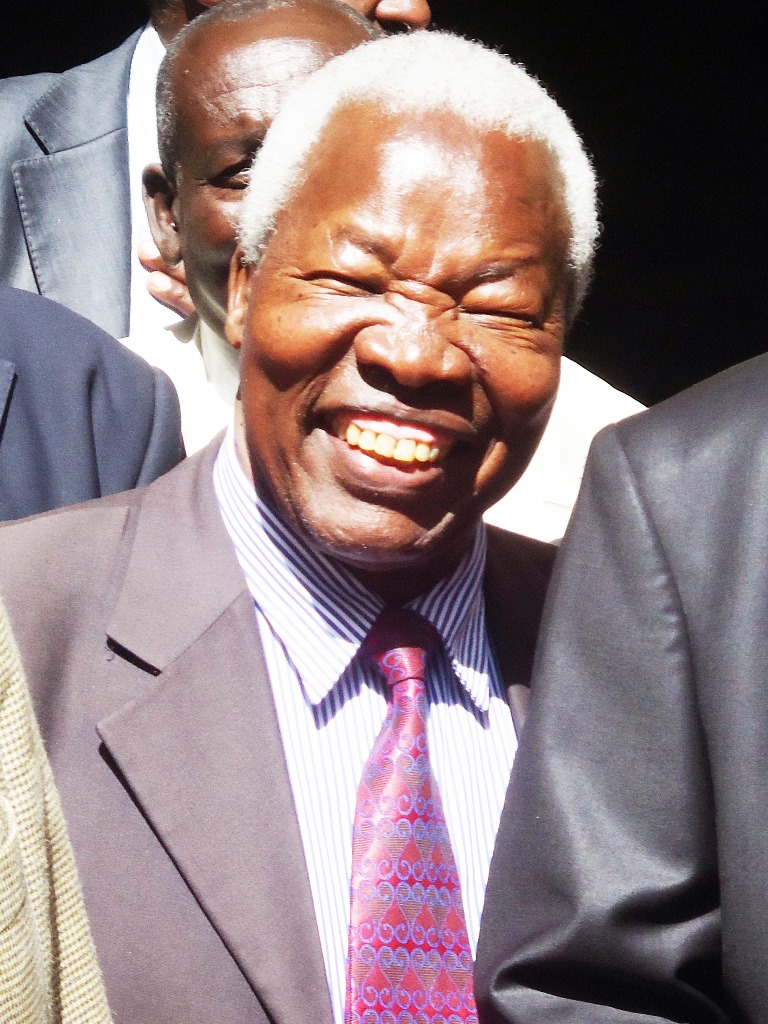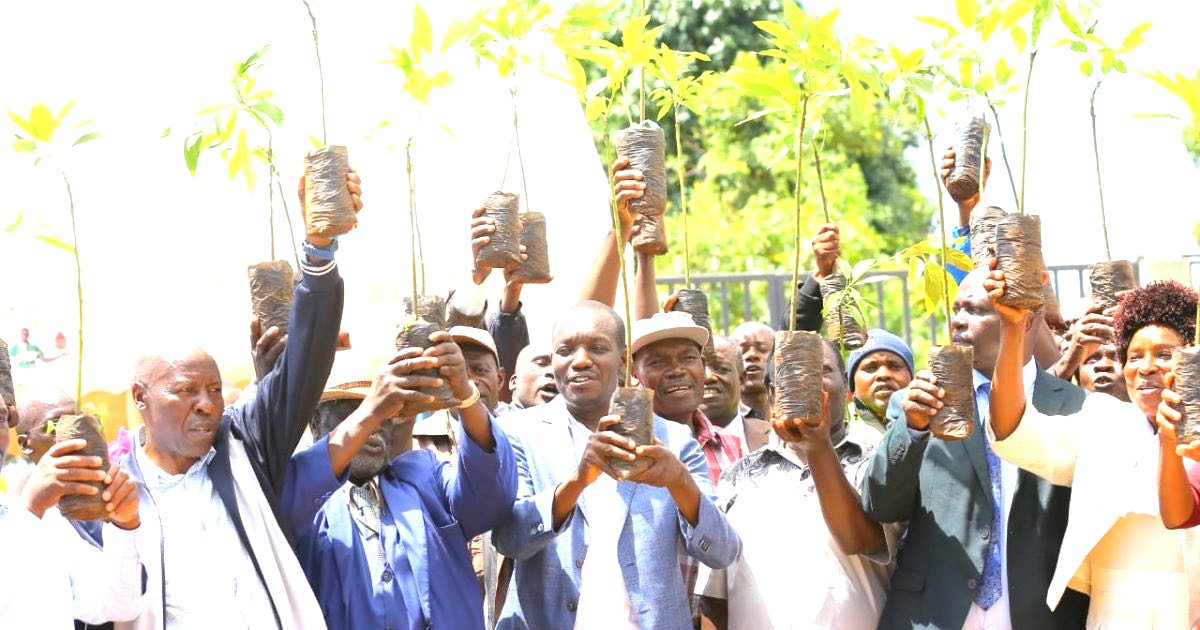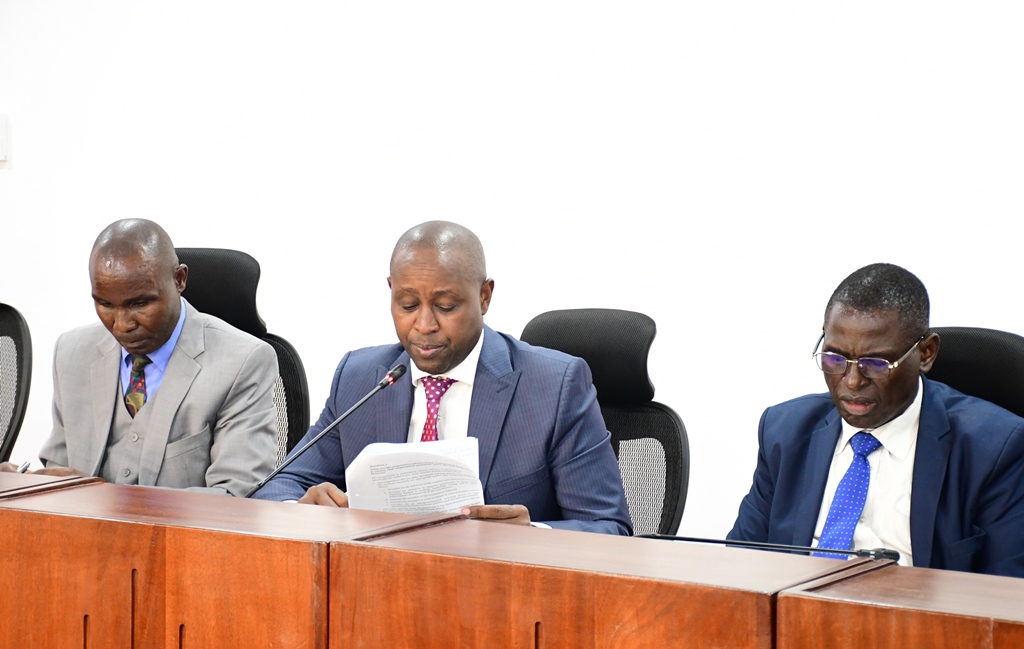By Benedict Ngetich
The successful growth of most Saccos in Kericho and Bomet counties can be traced back to serious commitment by a few ambitious elders.
Most of the prominent businessmen today in Kericho County started in a trade known as “Kipsigirio”, which is the use of donkeys to transport commodities. Others were pioneer teachers, while some were the first people to be employed by white colonialists.
One of these famous personalities is Mzee Nehemiah arap Suge, popularly known as “Lord Suge”, an enigma in the history and lives of the Kipsigis people in the larger Kericho region and beyond.
He is the leader of an indigenous Savings and Credit Society which has managed to purchase thousands of acres from the multinational tea companies, as well as from the Nyayo Tea Zone.
He was feted by the late Minister for Cooperative Development and Marketing Joseph Nyagah as an example to be emulated by the younger generation.
“The young should learn from him in an effort to improve development in the country,” Nyaga had said.
His business exploits border on folklore. Despite lacking formal education, the man is held in high esteem by virtue of his achievements.
He was born in 1931 at Kapsuser in Belgut Constituency and never pursued formal education due to lack of school fees, which was Shs8 per term.

He started his business buying and selling maize and milled it into flour.
“In 1951, I started my first business of buying and selling maize and milled flour. At that time, one bag of maize sold at Shs13, milled at Shs2 and then sold at Shs18.50 per bag. I would transport the flour from Kapsuser to Kericho town, a distance of 10 KM, on donkey back,” he narrates.
He continues: “Having made some savings, I started my own butchery in 1953, buying and slaughtering cattle locally. By 1955, I had moved to supplying charcoal for the Kericho District Hospital. The Kipsigis County Council, then headed by Mr. William Bill Martin, paid Shs4 per bag. The requirement for the hospital was only 60 bags a month. In the same year, I managed to buy my first 3-tonne truck, registration number KDC 871, at the price of Shs27,000.”
He was probably among the first Africans to purchase a heavy commercial lorry. With others, he initiated Sinendet Multi-Purpose Cooperative in 1977 with only Shs3 million. Currently the group, where he is the treasurer, is putting up a 8-storey building in Kericho town.
The cost of the project is estimated at Shs230 million and already Shs160 million has been obtained as a loan from one banking institution.
“We have started the construction and the project will take a period of one year to be completed,” said former Ministry of Lands Permanent Secretary Mr. Josiah Sang, who is the secretary to the society.
The now elderly Mr. Suge recalls incidents where members wanted to withdraw from the group and were demanding for refunds. He took a tough stance and invested the money.
“Most of the members decided to withdraw but I refused to give them money. I had to trade with the money and by the year 1989 we had Shs36 million and that is the success story of our society,” Mzee Suge disclosed.
Ambassador Joshua Terer, one of his friends, describes Suge as, self-made, focused, resilient and with a balanced social life.
His first major contract was with then Brooke Bond Liebig Kenya Limited, where he initially supplied firewood to the factories but by 1956 he had been appointed as the main supplier of firewood to the company and had to sub-contract others.
His community involvement started when the multinationals started disposing of their assets.
“I felt the locals needed to be involved in investment for a more secure future. In 1975 Brooke Bond sold the current Tea Hotel to the Kenya Tourism Trade Corporation, the predecessor of the Kenya Tourism Board. I felt that the locals should have a share and in view of this proposed to the Board that they sell part of this investment to us. They agreed to sell 40 per cent of the shares. At that time Tea Hotel was valued at Shs2 million,” he said.
He proceeded to register Yasangwan Holdings Limited to raise the funds needed for the purchase.
Subsequently, he and others founded Kapchain Company Limited and he sensitized the community on the need to buy shares and assets from the departing whites.
“I rallied the community to the point that in 1989 we managed to buy 932 acres of mature tea under a parent company which we named Kericho Rural Multi Purpose Co-operative Society. Under this umbrella company, we managed to buy Mau Tea Estate,” he said.
He has founded schools and churches since the 50s, notable among them Chepsir Secondary School in1976.
“I also initiated the local dispensary which used to be a settler’s barn. Later I spearheaded its renovation, expansion and registration as a health centre, complete with a laboratory,” he said.
In his twilight years, Mzee Suge is satisfied with his achievements and wants the younger generation to pick and carry the cooperatives mantle to greater heights.


